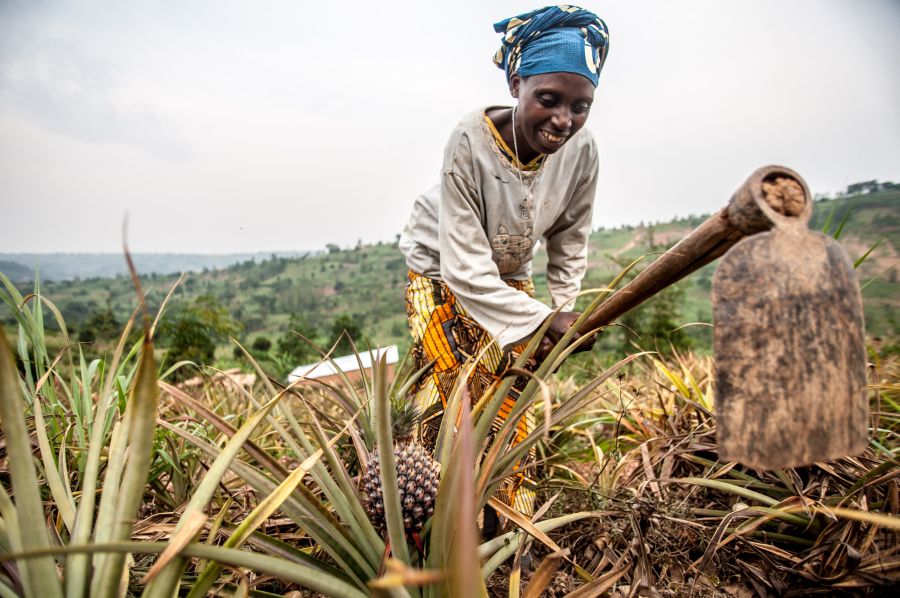With tumultuous colonial occupation, civil war and genocide that led to the death of an estimated 500,000 to 1,000,000 Tutsis in 1994, Rwandans historically endured massive displacements and human rights abuse. Thus, in the 21st century, the rectification of Rwanda’s previously untenable land governance system has become a major priority.

Between 2004 and 2014, with the support of international development agencies, Rwanda undertook a massive Land Tenure Regularisation Programme, which ostensibly eroded customary tenure systems but resulted in all land in Rwanda being titled.
Rwanda is dominated by smallholder farming, with more than 60% of farmers cultivating less than 2/3 of one hectare of land (just over 1.5 acres). The Land Tenure Regularisation Programme has strengthened tenure security and helped increase investments and the confidence of the global community. Rwanda is now ranked #2 in Africa according to the World Bank’s Doing Business report, only second to Mauritius.
At the same time, there is ample room for progress on tenure reform. Rules for land expropriation and acquisition grant the government broad discretion to acquire land from smallholders. Laws and government bodies fail to assure adequate compensation, resettlement and rehabilitation assistance to populations displaced by development projects.
Moreover, although officially women have equal rights to land in Rwanda, deeply embedded patriarchal cultural norms have harmed women. These norms include the forceful exclusion of women from decision-making processes and the failure to grant wives official rights to marriage property. Despite the serious land governance issues that remain, Rwanda has made significant progress towards establishing a transparent land governance system that is recognized as one of the most advanced in Africa.
To showcase the history and development of Rwanda’s land governance system, the Land Portal Foundation is launching a Country Portfolio on Rwanda, which includes datasets from FAO, the World Bank, Transparency International, LandMark and other global organizations.
Users can access data visualization tools that showcase World Bank Land Governance Assessment Framework data as well as data on the Voluntary Guidelines on the Responsible Governance of Tenure.
The Portfolio also includes the latest news, blogs and events relating to land issues in Rwanda, and also presents key stakeholder organizations working on land issues in the country. Moreover, the Portfolio provides direct access to more than 791 publications related to land issues in Rwanda, from key sources, such USAID, FAO, the Rwanda Initiative for Sustainable Development (RISD) and many more.

